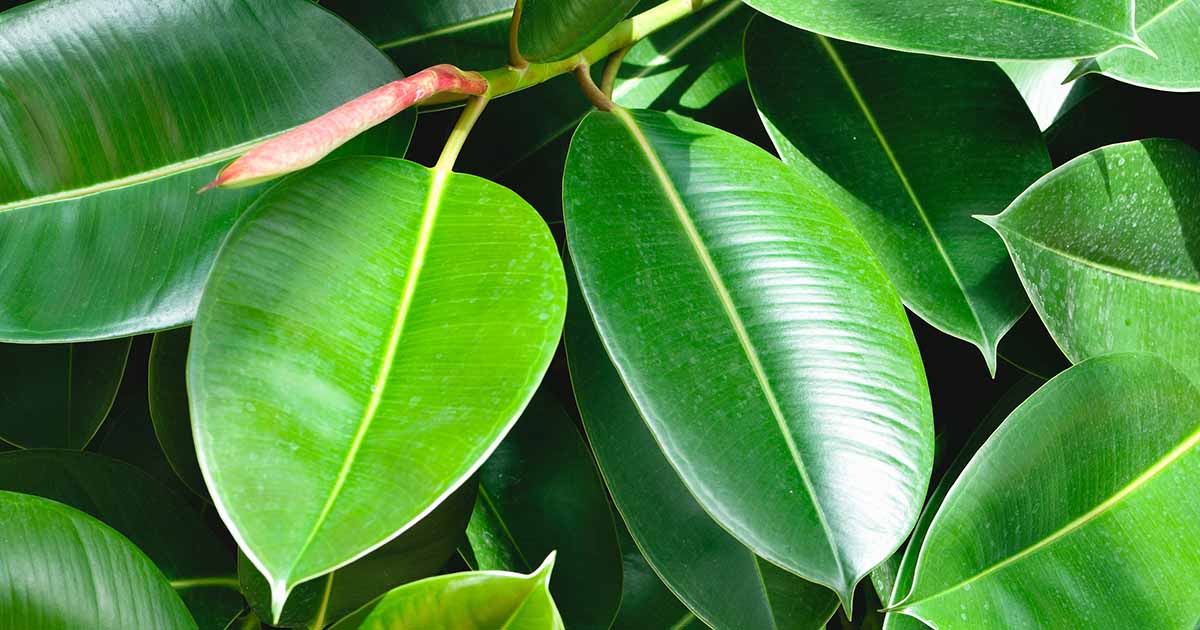It’s fairly exhausting to overlook when a rubber tree (Ficus elastica) begins dropping its leaves.
These thick, shiny leaves are so massive, you can in all probability hear them falling to the bottom with a thunk from a mile away.
Okay, they aren’t that heavy, however you get what I imply.
When a rubber tree loses its leaves, it’s way more apparent than it might be on another houseplants.
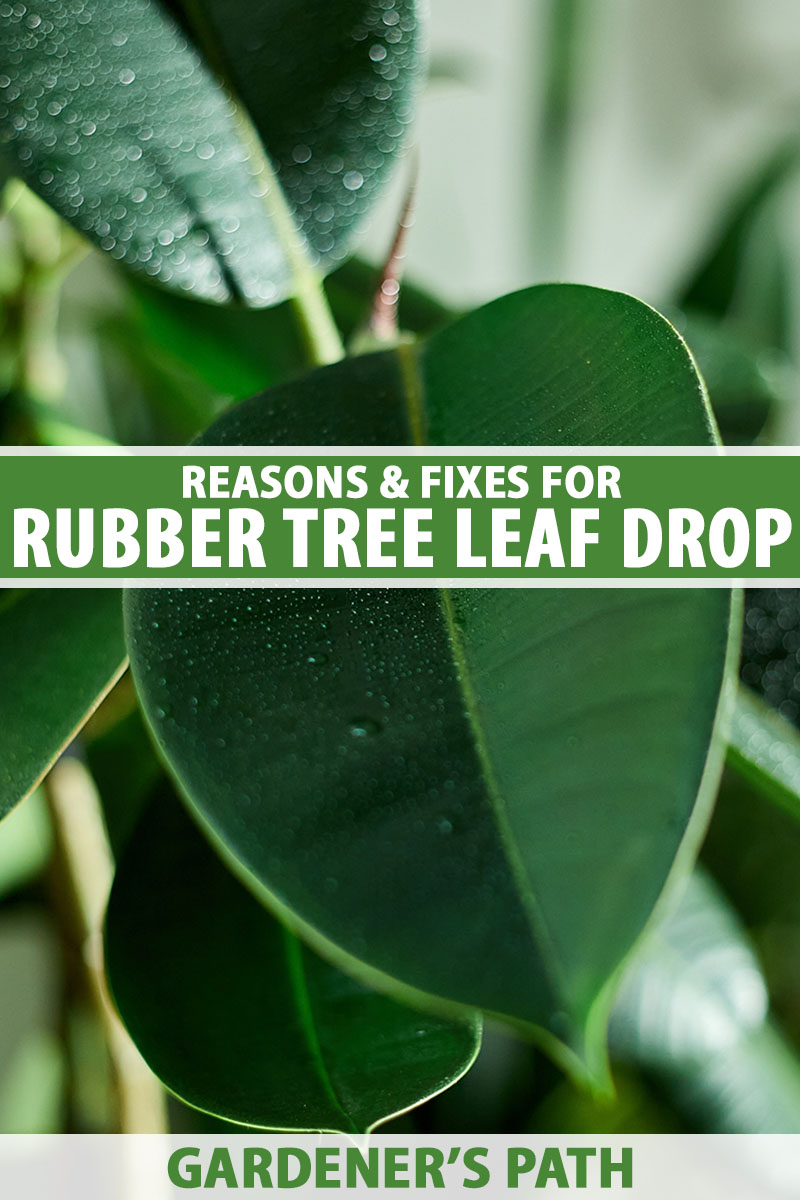
We hyperlink to distributors that will help you discover related merchandise. In case you purchase from considered one of our hyperlinks, we might earn a fee.
It’s not all the time doable to forestall foliage drop, because it’s an evolutionary tactic that these vegetation have developed in response to emphasize, however when you see foliage beginning to fall, fast motion can save your tree from ending up trying like a bunch of bare stalks.
Listed here are the causes that we are going to go over:
Rubber timber are a part of the Ficus genus, and ficuses have a little bit of a status for dropping their leaves all too readily.
It’s a protection mechanism that the vegetation have developed to take care of hostile situations.
So when you’re seeing that foliage falling, it’s a cry for assist. Let’s dive into the causes:
1. A Current Change
All members of the Ficus genus drop their leaves readily as a technique of adjusting to environmental adjustments.
Some are extra dramatic than others. F. benjamina, as an example, has a status for tossing its foliage on the drop of a hat.
Rubber timber are much less susceptible to throwing their leaves on the bottom in a huff, however they may nonetheless do it whenever you alter their atmosphere dramatically with out a transition interval.
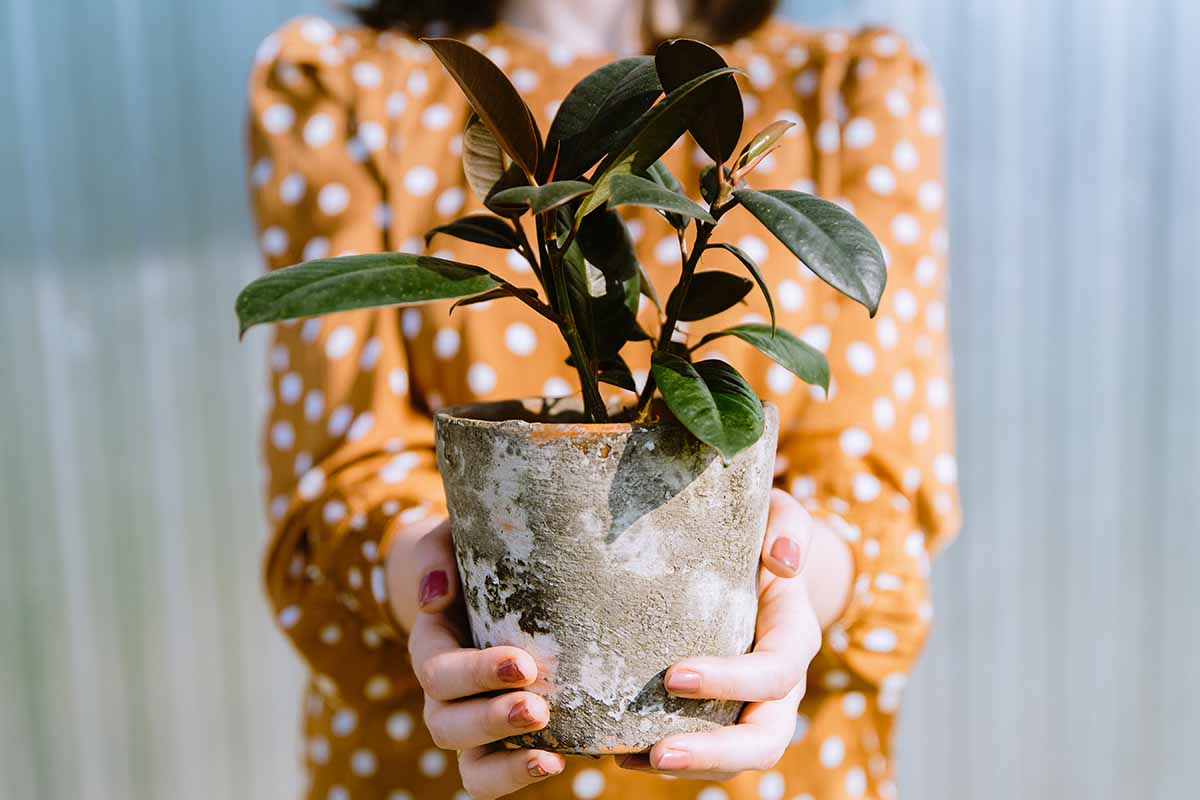
Meaning if you wish to transfer your plant from one finish of your own home to a different, it’s best to do it over a interval of some days. This offers the plant a while to regulate to the shift in mild and temperature.
It’s not all the time doable to do that, so simply know that when you lose some foliage, it’s completely regular, and the plant will develop again as soon as it settles into its new dwelling.
If you must repot your plant, there isn’t a lot you are able to do to reduce the shock besides to be sure to work rapidly.
2. Excessive Temperatures
Rubber timber can tolerate a reasonably wide selection of temperatures, with temporary intervals all the way down to 50°F. However something decrease, or temperatures round 50°F for too lengthy, and you may make sure you’ll be discovering foliage on the ground.
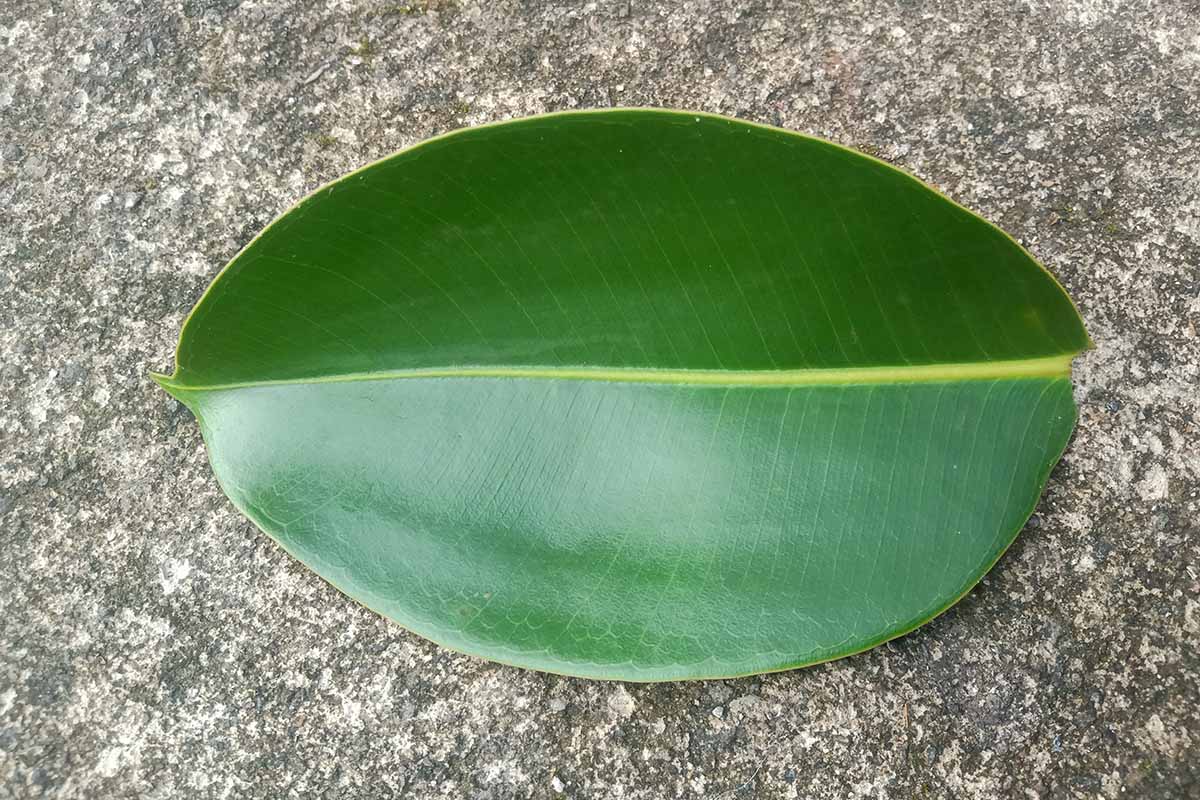
In addition they thrive in temperatures above 80°F, but when the temperature climbs to 90°F or above for too lengthy it might additionally end in leaf drop, notably if the air can be dry.
Ideally, maintain your vegetation in temperatures someplace between 60 and 85°F.
3. Inappropriate Mild
Many vegetation will drop their leaves once they obtain an excessive amount of or too little solar.
Most will substitute their leaves with ones higher fitted to the sunshine accessible, however there’s solely a lot {that a} plant can do to adapt.
Rubber timber want fairly a bit of sunshine, so the difficulty is usually not sufficient daylight quite than an excessive amount of.
F. elastica does greatest with two or three hours of direct daylight within the morning and 4 or 5 hours of shiny, oblique mild every day for the perfect development.
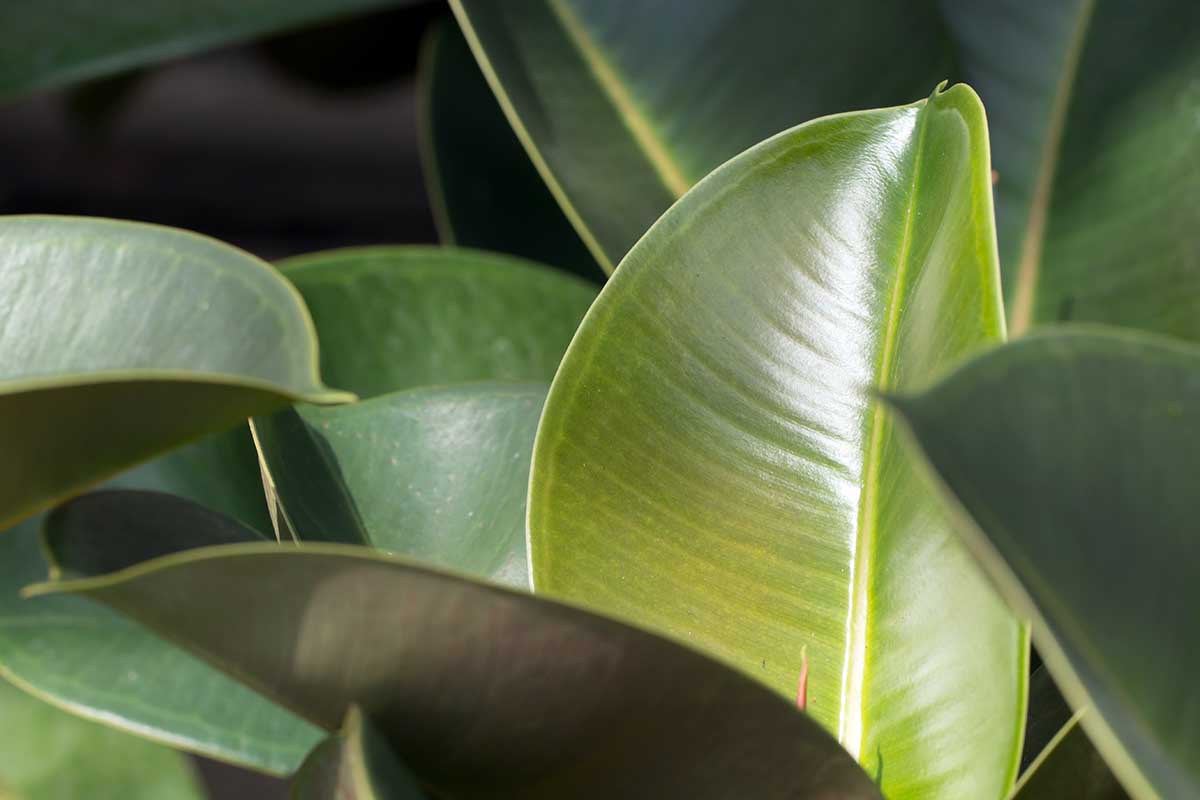
In fact, these vegetation will adapt to much less mild, but when the sunshine is simply too low, they may begin dropping these leaves.
A rubber tree positioned in shiny, direct afternoon solar or quite a lot of hours of morning solar will sometimes react by dropping leaves. This kind of mild is much too robust until the plant has been slowly and step by step launched to the brighter publicity.
Usually, you’re going to see different signs earlier than the leaves begin tumbling down, although.
Yellowing, superb webbing, speckling, or brown areas are all widespread indicators that spider mites are making a meal of your plant.
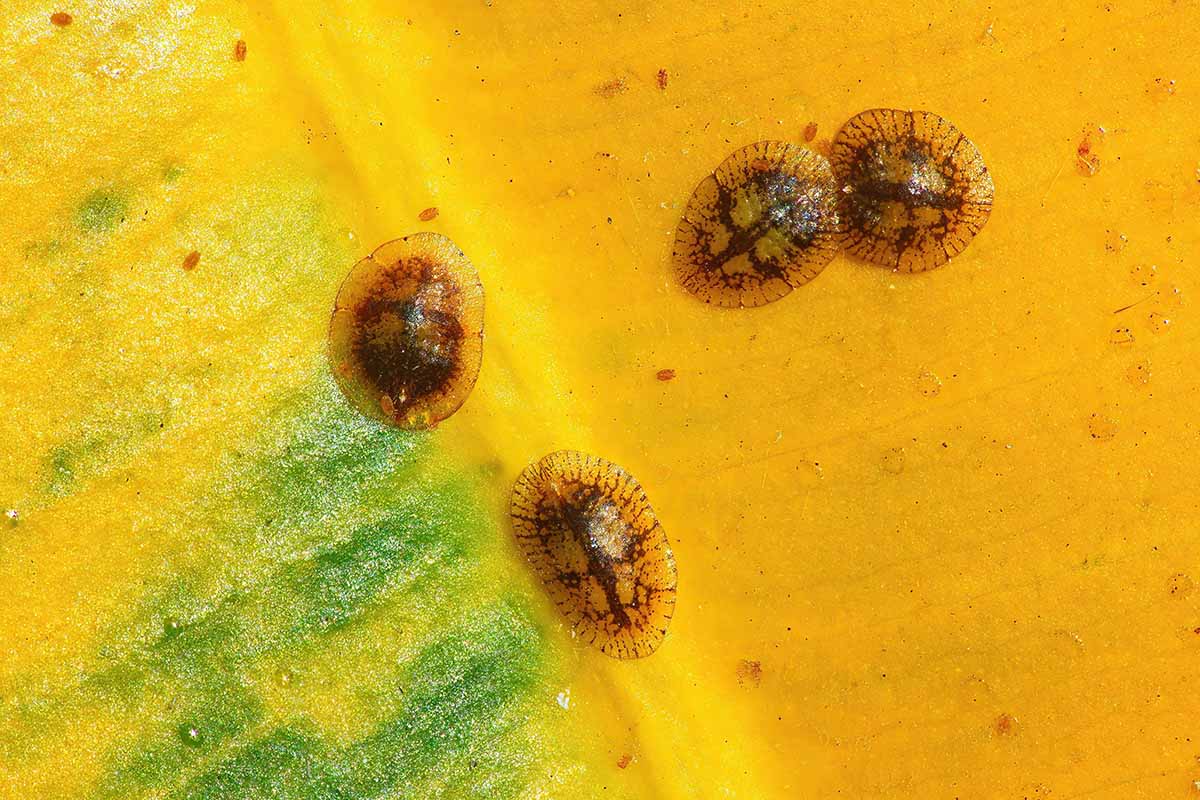
Brown areas, yellowing foliage, and speckling are additionally widespread indicators of aphids, mealybugs, and scale.
In case you look carefully, you’ll in all probability have the ability to see a few of the critters themselves.
If that’s the case, when you ship these pests packing, your plant will recuperate and cease dropping leaves.
For tips about figuring out and coping with any considered one of these pests, go to our information to rising rubber timber.
5. Root Rot
One of many issues that I like most about rubber timber is that they don’t actually undergo from ailments. The one biggie you must be careful for is root rot. This goes hand in hand with overwatering.
Root rot will be attributable to watering a lot that you just deprive the roots of oxygen, they usually begin to flip soggy and brown as they rot away. However it will possibly additionally contain the fungus Rigidoporus microporus.
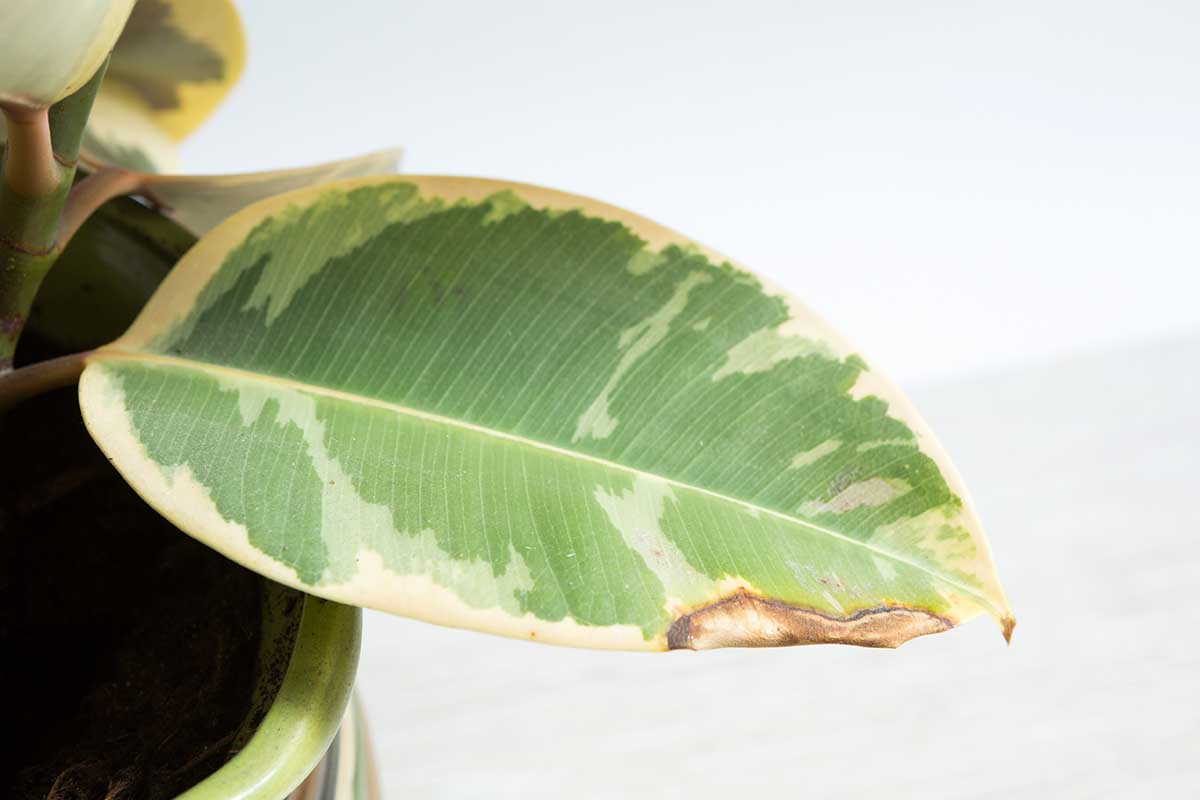
Root rot usually causes the foliage to lose shade and switch comfortable earlier than they drop off the plant. You’ll usually see browning on the edges within the early levels.
Coping with root rot, whether or not it includes a pathogen or not, includes eradicating the rubber tree from its pot and eradicating all of the soil from across the roots.
Spray the roots with copper fungicide and wipe out the pot with soapy water. Ensure that the drainage holes are open and never clogged up.
Place the plant again within the pot and refill with recent, new potting soil.
Going ahead, you must be additional cautious about watering.
6. Watering Points
I admit it, I’m a continual overwaterer. I’ve to carry myself again from watering an excessive amount of. Prior to now, I needed to sweep quite a lot of leaves off the ground below my rubber tree earlier than I obtained the hold of caring for my plant.
I figured that, like many houseplants, rubber timber just like the soil to remain moist however not moist always. Nope. I used to be so unsuitable!
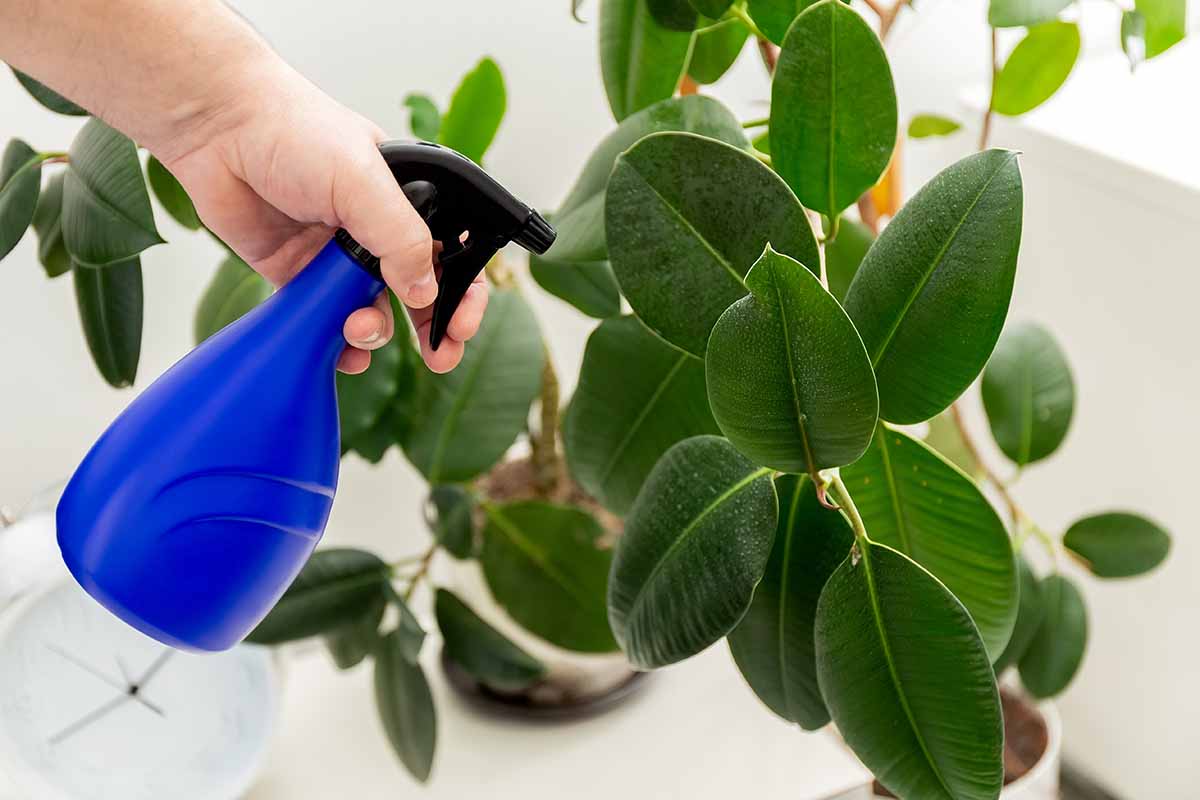
You need to permit the highest third of the soil to dry out utterly earlier than you water. These thick leaves retain quantity of moisture, and the plant can go longer than you would possibly suppose with out further water.
And overwatering can rapidly result in root rot, as mentioned above.
Alternatively, when you’re not offering sufficient water and the soil is dry past the highest third, then the plant isn’t receiving sufficient moisture and is probably going dropping leaves as a result of it will possibly’t assist them.
The answer, in that case, is easy. Water extra!
Put the Glue Away, These Leaves Will Keep
Falling foliage is your plant’s approach of telling you it’s having bother.
Typically it’s only a warning that your rubber fig is mad a few current transfer, but it surely may also be an indication that there’s something dangerous occurring. Now, hopefully, you understand how to inform what’s occurring and how you can repair it.
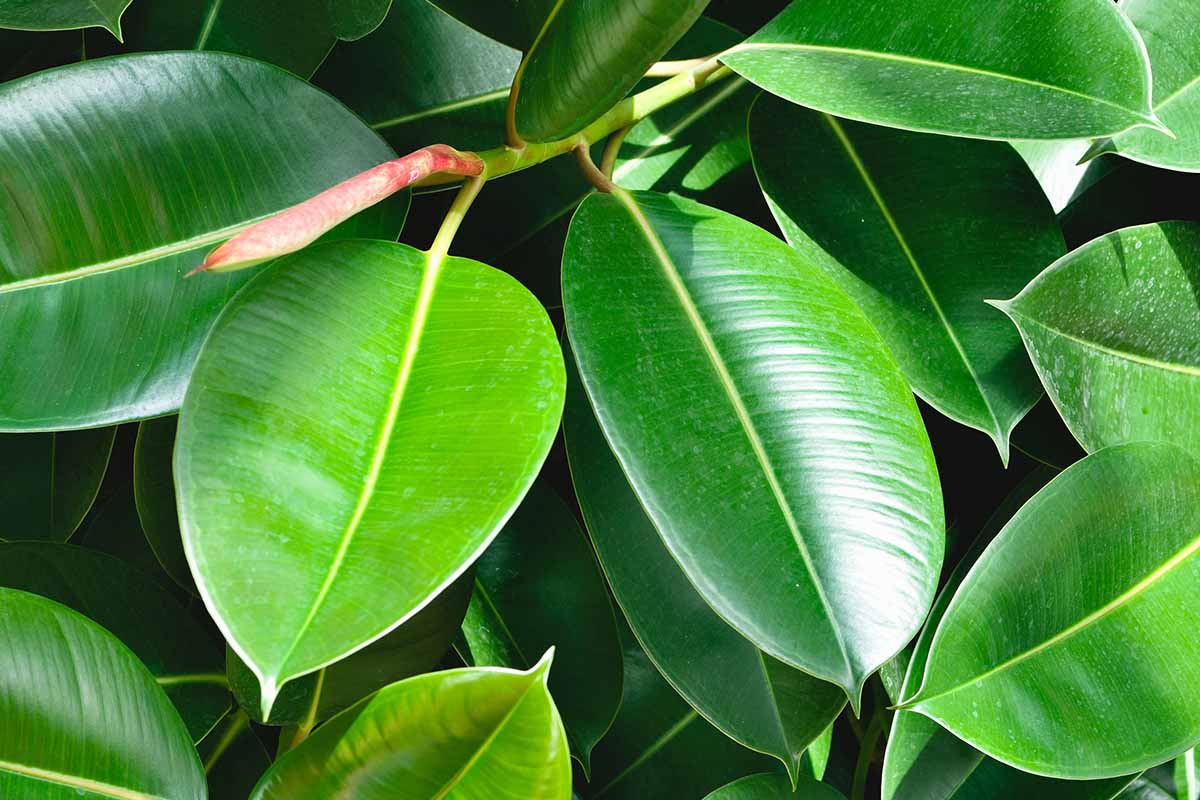
What should be blamed for your issues? Is your plant nonetheless struggling? Tell us what you’re seeing within the feedback, and we’ll do our greatest to assist.
In case you’d wish to study extra concerning the vegetation on this genus, listed here are a couple of guides that you just would possibly discover helpful:

